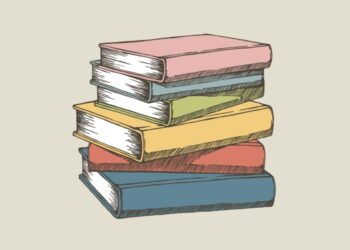You may be astonished to learn that even media students are not fond of written assignments. Of course, there are boys and girls who are ready to spend days and nights trying to find the best word to describe their thoughts or ideas. Yet, the greater part of students are not great fans of essays and research papers, so they end up engaging in plagiarism. There are several reasons why students do not like to write essays. The most standard of them are the following:
- It’s a rather time-consuming process: It’s big confusion to think that the process of writing an essay implies only writing. It’s also about gathering, analyzing, and processing tones of information. When it comes to writing a term paper or a dissertation, it may take up to several weeks to find all the needed data.
- You should possess profound knowledge in many subjects: All the facts should be carefully checked. It’s of prime importance to use only relevant information. Moreover, you are to avoid grammar, spelling, and logical errors in the texts.
- It may be boring: It’s okay not to like definite tasks. Someone is not a great fan of exact science and figures are able to drive him or her crazy. Others consider writing assignments boring.
- All papers are being checked seriously: If you think that tutors do not check your essays, you are wrong. Moreover, supervisors have rich experience. It allows them to define whether it’s your own essay or you’ve just written it with the help of so trendy “copy-paste” method.
- Plagiarism checking is a must: These days plagiarism check is mandatory.
There are lots of ardent arguments and discussions about the last point. Thanks to the development of technologies, it has become so easy and simple to check any dissertation, term paper, or even an essay for plagiarism.
What is plagiarism?
The term “plagiarism” is a little bit confusing. Many students understand it as the impossibility to use any information given on the other sources. So they just do not understand how to write a relevant and accurate essay without using any sources of information. That’s why it’s of prime importance to clarify what this term exactly means. Plagiarism is the use of any piece of information without crediting the source. It also implies stealing others’ ideas or thoughts. It’s necessary to highlight that there are several types of plagiarism:
- The global type implies that you just copy the whole text and change nothing.
- The mosaic type implies that you find several texts, copy paragraphs from them, and make up your own text. If you think that the ready paper is unique, you are wrong.
- The next type of plagiarism is called incremental. It means that you create an original text but add some plagiarized sentences in it. It often happens if you fail to cite quotes in the right way.
- The last type is the so-called self-plagiarism. It means that you re-write your own works.
By the way, uniqueness requirements may vary from university to university. It’s cool if you are able to create 100% content. Yet, it’s necessary to keep in mind that citations are a must for a greater part of academic papers. Thus, very often, the texts could not be fully unique. The accessible percentage of plagiarism may vary from 10 to 25%. You are to clarify this issue in your college or university.
Checking for plagiarism
Nowadays every student has an awesome opportunity to check his or her work for plagiarism before handing it out to the tutor. There are lots of attainable and affordable applications that make this process very simple. You should only copy your text, paste it into the needed program, and wait for the results. If the results you get are good, it’s great, you can hand out your assignment.
Yet, if it appears that your paper contains a higher percentage of plagiarism than it’s allowed, you have to modify the text. The majority of online plagiarism checkers show the abstracts from the task that are marked as plagiarism. Some of the top free and paid plagiarism checkers include the following software:
- Copyleaks: It supports various file formats and many languages. It’s good for online content. You may use it for free.
- Scribbr: This program is rather reliable. it lists all the matched sources. Scribbr is one of the most effective tools for plagiarism checking. Yet, it’s not free.
- Grammarly: It has a user-friendly interface. The program can also correct mistakes. Yet, you are to pay for a plagiarism check.
- Plagscan: It’s one of the best apps for academic writing. The platform gives you an opportunity to check your papers for plagiarism without effort.
- Unicheck: It detects duplicate texts in no time.
Conclusion
Whether you like it or not, but you have to provide lots of plagiarism-free papers during your college studies. You have two possible ways out. The first implies that you master your writing skills and are ready to spend hours when preparing relevant, accurate, and plagiarism-free papers. The second way out implies you engage a qualified and experienced writer to write the paper for you.


































































































































































































